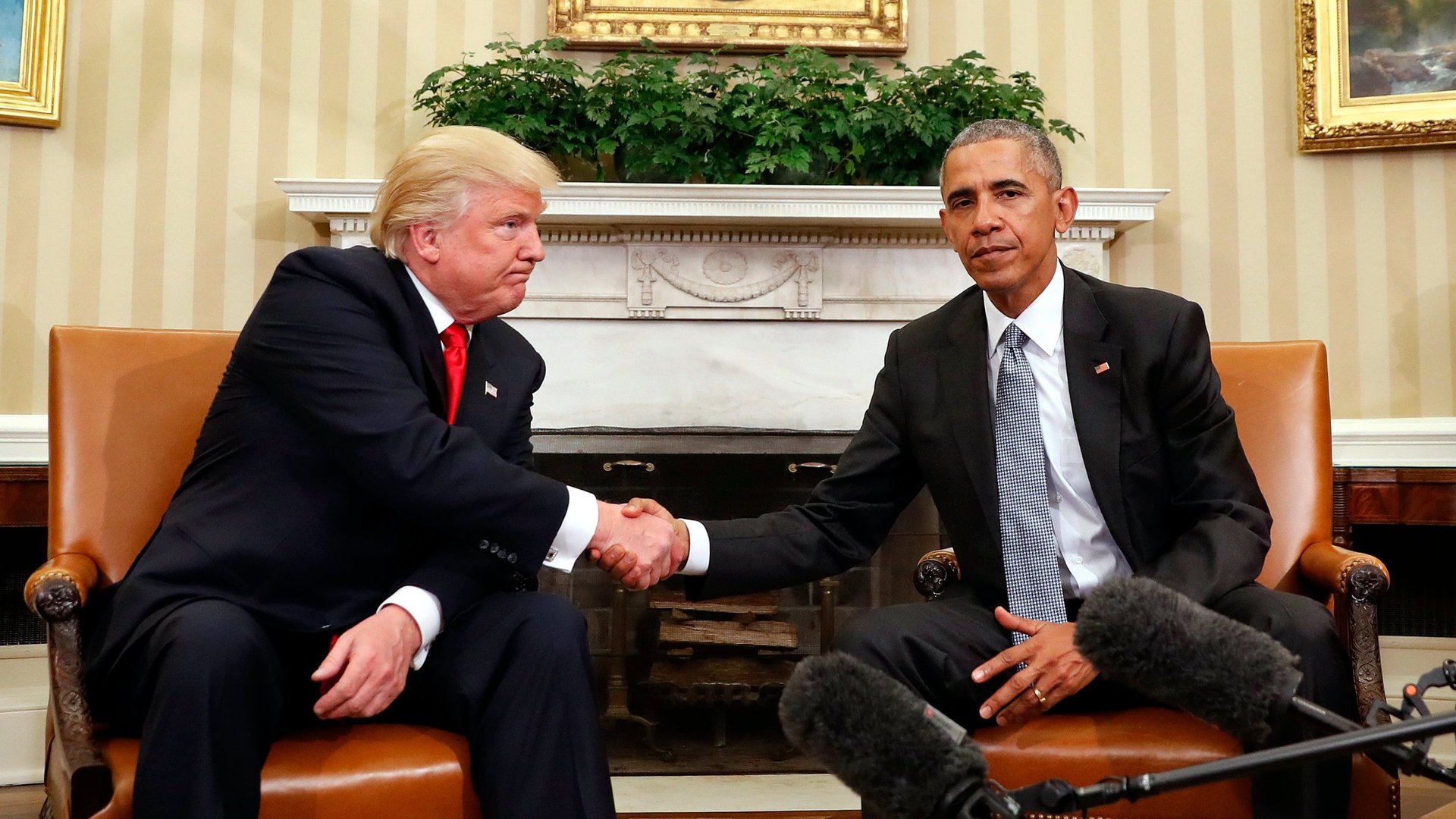Donald Trump is making the same deal with China that Barack Obama did
President Donald Trump shared a little insight into US foreign policy after North Korea’s fizzled missile test:


President Donald Trump shared a little insight into US foreign policy after North Korea’s fizzled missile test:
This helps explain two recent reversals that baffled Trump watchers in recent days: Following a summit with Chinese leader Xi Jinping, the president said he would no longer accuse China of subsidizing its currency to make its exports more competitive, and revealed a more nuanced understanding of China’s leverage over North Korea than he displayed on the campaign trail.
Here’s a sample of Trump 2016 rhetoric on the issue: “If they don’t solve that problem, we should be very tough on them on trade—meaning, start charging them tax or start cutting them off. You’d have China collapse in about two minutes.”
But 2017 Trump seems to have left the proverbial stick back on the campaign trail. Part of the reason for that is a reality check: China is currently stabilizing its currency to protect its value in a way that economists say is helpful to global markets; its efforts to boost exports through a cheaper yuan fell off years before Trump announced his campaign.
Even when China was goosing its currency, both the Bush and Obama administrations used the threat of official sanctions only as a bargaining chip, despite pleas from executives and trade unions in hard-pressed industries to impose punitive measures. Those administrations calculated that cooperation on other issues, including North Korea, was more helpful to international stability than a fight over trade terms.
North Korea has escalated its missile and nuclear test programs since Kim Jong Un became its leader in 2011, following the death of his father, Kim Jong Il, who ruled the country for seventeen years. The country aims to develop a reliable intercontinental ballistic missile that would allow it to threaten the mainland United States with nuclear weapons, a situation regarded as intolerable by US security officials.
Since Trump and Xi met, China has reduced coal shipments and threatened the oil trade with North Korea. But it’s not clear if China will continue those sanctions, or join the international community in pressuring Un and his family’s personal finances. It’s also hard to say what will happen if the US renews its efforts to deploy missiles in South Korea that could intercept ICBMs. The move is characterized as defensive but has been opposed by China, whose leaders do not want the precedent of advanced US weapons deployed near their territory.
As Trump slides into Obama’s shoes in the face of the North Korean threat, it’s a reminder that geopolitical interest can quickly outweigh even Trump’s unpredictable rhetoric.